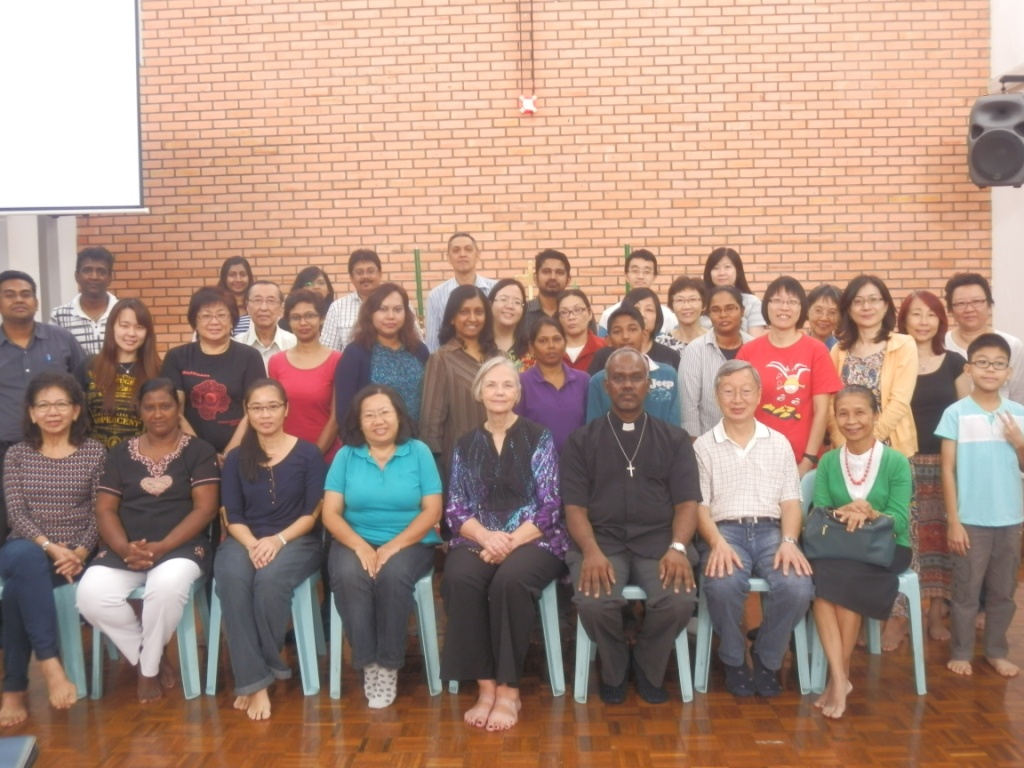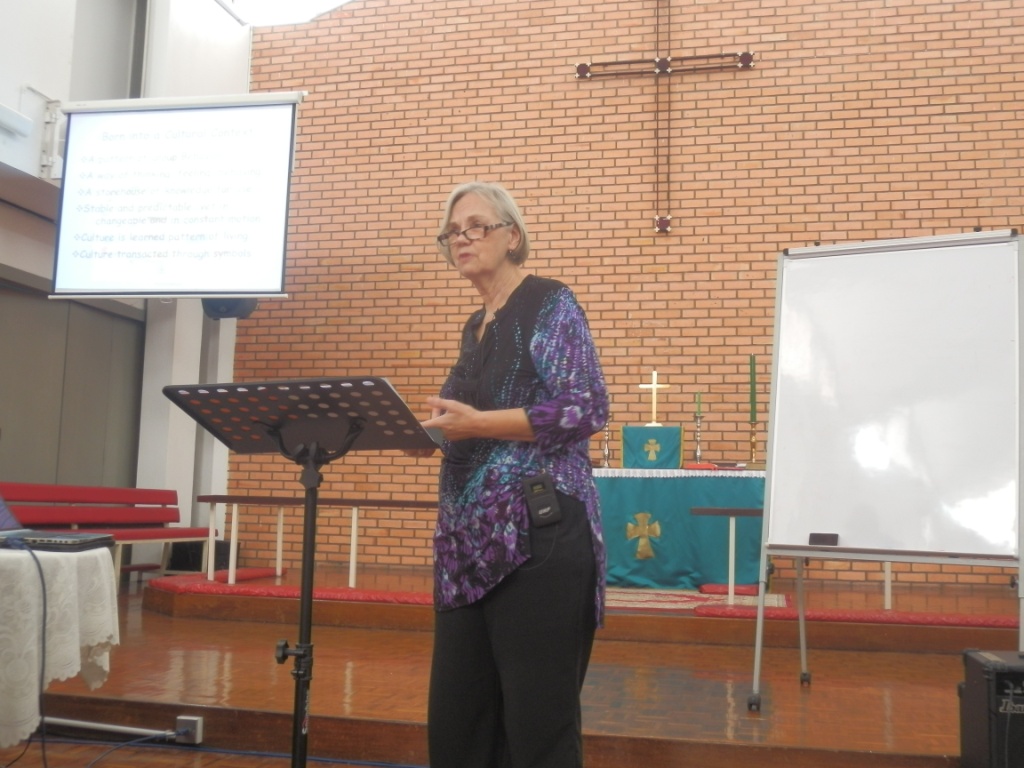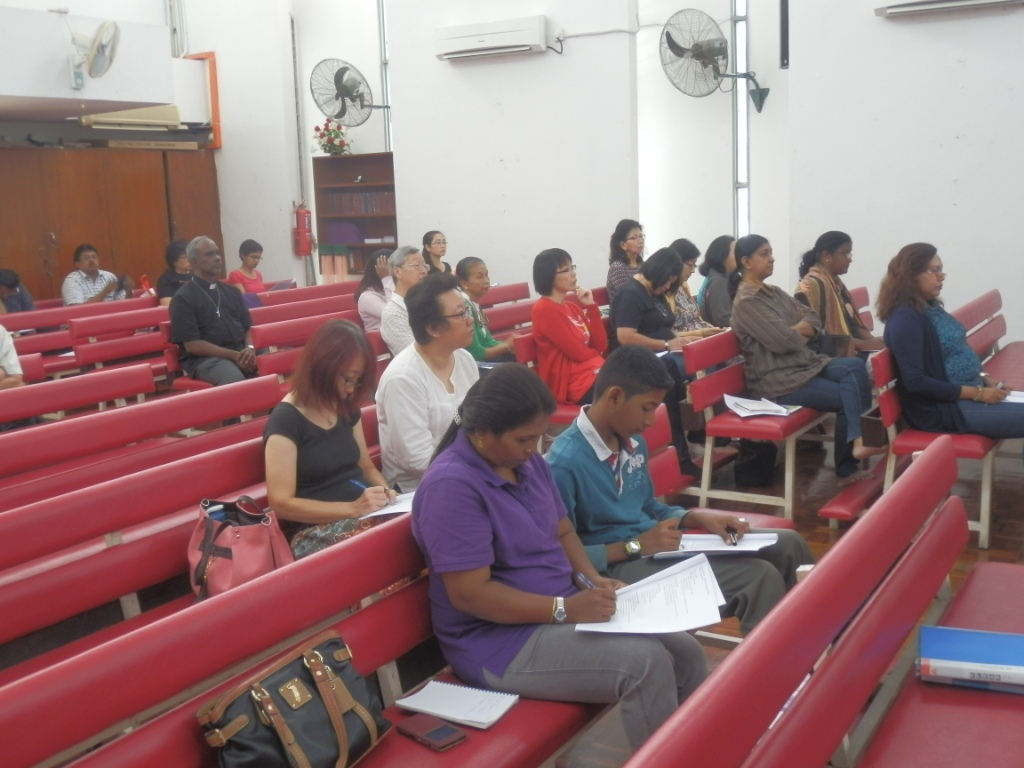
Grief and Loss are two heavy words that are strongly interconnected with each other. One will ask themselves, how do I deal with the loss of a loved one? How do I comfort those around me who are in pain? Is there an end to my pain and problems? Is God there to help me? Yes, we often face loss, grief, crisis in our daily lives and also see the people around us face the same. The question is, how do we as Christians provide support to these people who are suffering from various losses?
On the 10th of October 2015, a workshop on Grief and Loss Support by Dr. Rosanne A. Swanson was held in the Victory Lutheran Church, Penang. Dr. Rosanne has a PhD in Pastoral Care and Counselling. She has a variety of experiences of ministry and she brings this interest in cross-cultural issues to the teaching of pastoral care. She has a particular interest in narrative approaches to care and counselling and helping to understand life stories.

Five main topics were covered thoroughly during the sessions. The topics were :
-
Loss and Crisis -
Trauma and Ambiguous Loss -
Grief -
Listening and Grief Support -
Biblical Witness for God’s Enduring Care
Loss and Crisis ; There are varieties of losses that one may face in one’s lfie. Example of those losses can be situational, unspeakable, relationship, permanent, ambiguous etc. Unspeakable losses are losses that we do not openly discuss/speak of like miscarriage or even loss of finances. Relationship losses include death, divorce, distances (moving to another state or country). As it has been clearly mentioned, losses come in different varieties, and there are different ways of dealing with the various losses. Crisis is defined as a crucial time or turning point in the course of anything. It is a disruption of the balance of life. Dr. Rosanne mentioned that there are several planned crisis in one’s life transitions. For example, new roles, physical changes, mid-life crisis etc.
Trauma and Ambiguous Loss ; Trauma is a deep tear in the fabric of our lives in which the ideas, attitudes and assumptions about our world are called into question. Some sources of trauma originate from natural disasters, acts of violence, abuse, sudden death and war. One of the striking subjects that were highlighted were the Survivor’s Guilt where one has intense grief and very attached to a real loss and starts asking “Why Not Me ?”. At situations like this, we have to help them to acknowledge and accept that the guilt is real. Connecting and talking with them will certainly help them to accept the mystery of the loss and also appropriate tribute to the deceased can be established. This is also linked to individuals that experience ambiguous loss which means that losses which are unclear and are caused externally.
Where did Jesus Go? In 1 Peter Chapter 3, we read that Jesus continued to save souls even after his death. The world died ; love died ; God died ; – into the realm of the dead. In the realm of the dead, it was a place where Jesus went and he knows, after being crucified and before resurrection. A place of wounds that never seem to heal and where all hope seems gone. It was a place of waiting and not knowing. This happened during the middle territory between Good Friday and Easter Saturday, the Holy Saturday.
So, what can the church do help those suffering from ambiguous losses? The church can pray and also listen to the stories and be there for these people. Besides that, the church can offer a place to lament and provide a community of support and also most importantly, preach Jesus.

Grief ; It is the common emotion that follows any loss of sort. It is our own emotional response to the losses in our life. We experience all sorts of grief in our life cycle from childhood to adulthood. One of the subjects mentioned in this session by Dr. Rosanne was depression. How do we help people with depression? It definitely requires time, a lot of patience and deep listening. We can encourage small and manageable steps for daily living and help them to realize that if they keep moving forward, there is light waiting at the end of the tunnel.
Listening and Grief Support ; In Romans 12 : 9-13 , Paul reminds us in a long list of Christian virtues to “practice hospitality”. Jesus, himself clearly showed hospitality many times on separate occasions which can be found in the New Testament. Jesus “sees” and “listens”. Hospitality is an attitude of the heart which consists of humility, vulnerability, thoughtful availability and reciprocity. We can also provide support by giving empathy and by listening to those who are in need of help.

Biblical Witness for God’s Enduring Care ; The Bible helps us to understand our grief as God grieves and also responds to our grief. Grief can interrupt our life’s routines and it is expressed in a variety of ways. We must know that God also teaches us lessons through suffering and that He is also suffering with us. In this session, Dr. Rosanne also talks about resilience. Resilience is the process of adapting well in the face of adversity, trauma, tragedy, threats or significant sources of stress. It is the ability to accommodate change. Having faith places us in God’s care and also offers strength in times of trouble. We can foster resilience by pray and meditate regularly and also laugh and play whenever you can and cry when you must. It is also important to find someone that you trust to share your secrets with and know that you are not alone in your grief.
This workshop has certainly helped to increase awareness about the symptoms and causes of grief and loss and also on how to provide support and address it in God’s way. I certainly hope that you have found this article beneficial to you and may we all practice this wherever we go and start lending a helping hand and showing hospitality like how Christ our Saviour does . May God Bless you.
|Share The Good News|




Excellent work well done. Keep up the spiritual work. GOD Bless YOU.